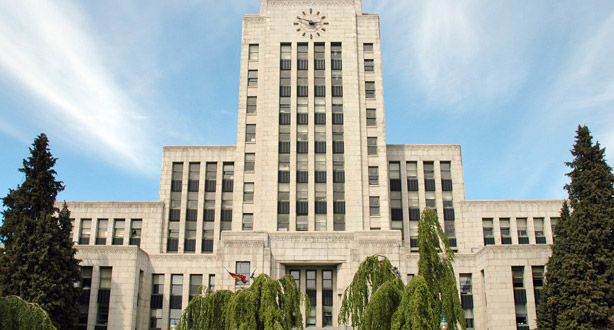
Today, Council unanimously approved new actions to support the City’s Climate Emergency Action Plan (CEAP), moving Vancouver closer to meeting its climate goals.
Earlier this year, staff presented the second annual CEAP update to Council, noting there was more work to be done to meet Vancouver’s ambitious climate targets of reducing emissions by 50 per cent by 2030. The additional actions passed today will help fill some of the gaps, while reinforcing the importance of moving ahead with the City’s 2020-2025 climate plan to improve buildings, neighbourhoods and transportation.
The new climate measures PDF file (313 KB) focus on near-term opportunities to:
- Align existing community plans with Vancouver Plan to maximize climate benefits.
- Streamline electrical services for missing middle housing.
- Pursue funding opportunities to increase safe and accessible walking and cycling.
- Advocate for provincial funding for active transportation.
- Improve electrical permitting processes for electric vehicle (EV) charging.
- Update our EV Ecosystem Strategy to align with CleanBC’s zero emissions vehicles sales targets.
- Explore private-public partnerships to increase public EV charging.
- Accelerate carbon pollution limit timelines for existing commercial buildings.
- Streamline permits for heat pumps in new & existing residential buildings.
- Advocate for more schools in growing neighbourhoods to reduce emissions from driving.
Implementing these new measures, along with the climate actions in CEAP, and the province’s commitments under CleanBC, puts Vancouver on track for a 41 per cent carbon pollution reduction by 2030. Vancouver’s 2026-2030 climate plan, which will be brought to Council in 2025, will present the next opportunity for Vancouver to adopt new actions to reduce emissions further to hit the 50 per cent reduction target.
Benefits of climate action
Climate action provides many benefits for residents, including improving neighbourhood walkability through land-use planning. Prioritizing active transportation and transit also benefits residents, particularly the quarter of all households in Vancouver that do not own a vehicle, nearly half of which are low income.
Actions such as increasing heat pump uptake, especially in existing rental and non-market multi-family buildings, reduces carbon pollution while providing air conditioning, which benefits those most vulnerable during heat events.
For more information, visit: https://vancouver.ca/climateemergency